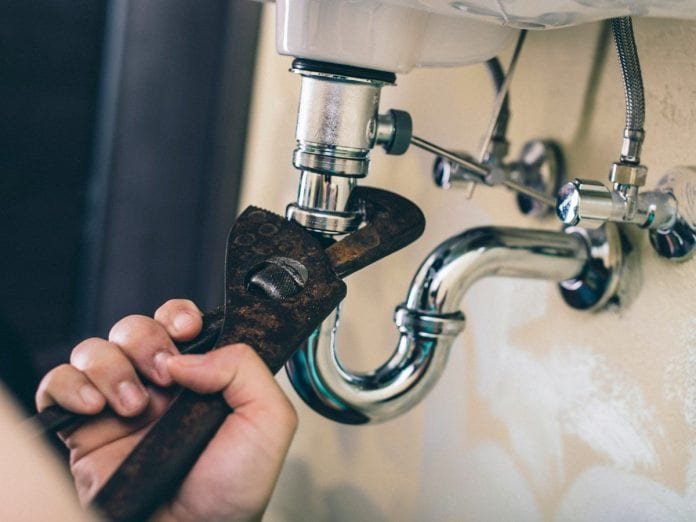Last Updated on February 11, 2025 by Bisma Sehar
These days, it feels like everyone is either struggling to find work, struggling to find work that pays well, or struggling to find workers. Whether you believe in the existence of The Great Resignation, wish to cast aspersions about who’s driving it, or are tired of hearing about it, the fact remains that getting well-paid work is difficult.
However, what if I told you that there was a job that would always be in demand, paid relatively well, and doesn’t require a four-year degree? You’d be interested, right? All you have to do is become a plumber!
Not sold by the unglamorous prospect? Here are 7 compelling reasons that you should consider becoming a plumber.
Table of Contents
1. Your Job Will Always Be in High Demand
Educators allowed the trades to languish for many years because they placed such a strong emphasis on getting a college education. However, unless you major in a few very specific fields, you won’t find employment right out of school. And even if you major in one of those high-demand fields, the rapid advancement of science and technology may mean that your chosen area of expertise is no longer needed by the time you graduate.
By contrast, a plumber will always have work to do. So long as there are pipes that need fixing and water systems running, there will be a need for plumbers. You’d be hard-pressed to find that kind of job security and stability in the corporate world.
2. Command Decent Salaries Without a Master’s
These days, it all but takes a Master’s degree in your field to grab an annual salary above $50,000. Of course, that comes at the expense of six years of college with little guarantee of employment in your chosen field. That’s a significant investment of both your time and your money.
If you become a plumber, you can command an average salary of $50k a year with little more than some time in vocational school and an apprenticeship with a master plumber. Some of those apprenticeships might even come with a paycheck!
3. You Can Work in Many Different Industries
When we mention “becoming a plumber”, your mind doubtless conjured the classic image of the blue-collar man heading into people’s houses to fix their toilets. While that does form a significant part of what plumbers do, it doesn’t tell the whole story. Anywhere that there are pipes that need fixing, a plumber can find work.
Waterline Plumbing clarifies that you could even participate in the planning process for new plumbing systems in a planned building. Or, you could help a city update its old water pipe infrastructure, reducing the chance for breaks and severe complications down the line.
Each day could bring a new sort of work to your table, giving you the variety that a corporate desk job could not.
4. Become a Plumber, Receive On-the-Job Training
Remember when we mentioned above that some plumbers receive paid apprenticeships? That’s relevant here. Plumbing is one of the few industries where you can almost count on receiving on-the-job training, even after you’ve earned your licenses.
No one’s going to throw an untrained plumber to the wolves with a severe leak that requires replacing several pipes. The risk of letting someone who doesn’t know what they’re doing damage the system or even worsen the problem they were called to fix is too great.
So, if you’re someone who doesn’t like the way many jobs will leave you high and dry for training, becoming a plumber might be a great option.
5. Having a Plumber Career Keeps Your Mind and Body Sharp
There’s no denying that plumbing is hard work, both physically and mentally.
While stereotypes would have you believe that tradesmen are uneducated, nothing could be further from the truth. In fact, it takes great mental acuity and problem-solving skills to examine a plumbing issue and figure out the right tools to use for the situation. (If you doubt us, try looking at the pipes under your sink and tell us you could fix them if they had a problem without training or looking anything up.)
Of course, plumbing can be a physically taxing career. You’ll build a lot of muscle from walking around, lifting heavy pipes, and using tools. However, you may also develop arthritis in your hands or back issues from all the lifting.
6. Easy to Work for Yourself
Another amazing benefit to becoming a plumber is that it’s easy to work for yourself. Once you have all the relevant licenses, you can choose whether to work for someone else or go off and start your own plumbing company.
All you need to do is stock up on plumbing products, set up a website, and market yourself like any other small business owner. Thankfully, plumbing is in high demand, so as long as your prices are reasonable or your work quality beyond reproach, it should be easy to bring in clients.
7. No Need to Call a Plumber for Your Own Repairs
One last benefit when you become a plumber is that you would no longer have to rely on someone else for repairs when your own home’s plumbing decides that it no longer wants to work. Conducting your own plumbing repairs is significantly less expensive than having someone else come to handle them. That way, you only have to pay for parts, not parts, labor, and travel expenses.
Looking for More In-Depth Breakdowns About Your Career Options?
If you become a plumber, you’ll have much greater job security and much less debt than many who work desk jobs. However, if the life of a tradesman isn’t for you, and you’d like an in-depth look at other career options, why not check out our blog? We update each day with more helpful and educational articles like this one!
Read More: How to Pick a Residential Plumber: Everything You Need to Know
















